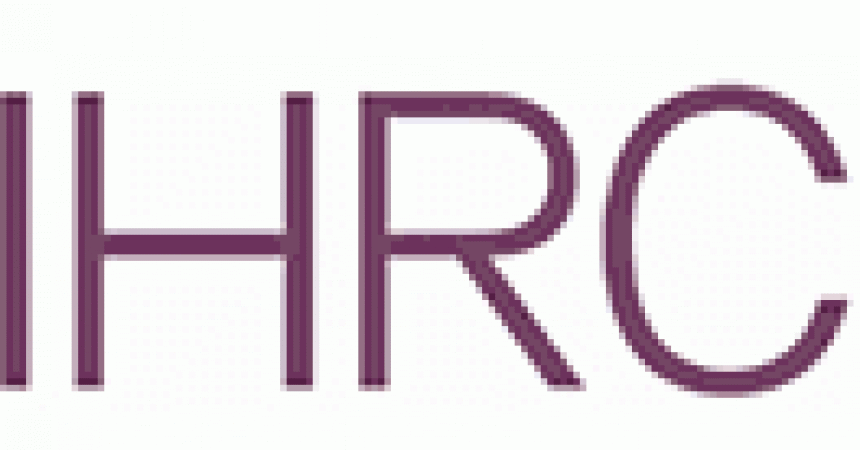
IHRC Discussion Paper Part 3 – Rules of National Schools and Primary School Curriculum
This is an extract from a discussion paper written by the Irish Human Rights Commission about religious education and human rights. Atheist Ireland is preparing a response to this discussion paper, and we welcome your feedback on it.
Rules of National Schools and the Primary School Curriculum
11. The Rules of National Schools were promulgated by the Department in 1965 and have been amended on a number of occasions since. The rules are comprehensive in dealing with all aspects of the running of national schools, but do not have a legislative basis. Nonetheless they are adhered to by every State funded national school in the country.
In addition to the Education Act 1998, the Rules deal with such matters as Patronage and Management, the physical structure of schools and equipment, the school year, staffing and so on. Adherence to the Rules is required in order for each school to draw down funding to pay staff and teachers’ salaries.
12. In the context of religious education it is noted that in the preface to the Rules the relevant provisions of the Constitution in relation to education are set out, and there is acknowledgment of the Constitutional right of parents to withdraw their children from religious instruction in a particular school. The Rules go on to state that:
“In pursuance of the provisions of these Articles the State provides
for free primary education for children in national schools, and gives explicit recognition to the denominational character of these
schools.”
13. The integrated curriculum is given statutory footing in section 15(2)(b) of the Education Act 1998 which provides:
“(2) A board shall perform the functions conferred on it and on a school by this Act and in carrying out its functions the board shall— do so in accordance with the policies determined by the Minister from time to time, uphold, and be accountable to the patron for so upholding, the characteristic spirit of the school as determined by the cultural, educational, moral, religious, social, linguistic and spiritual values and traditions which inform and are characteristic of the objectives and conduct of the school, and at all times act in accordance with any Act of the Oireachtas or instrument made thereunder, deed, charter, articles of management or other such instrument relating to the establishment or operation of the school.”
14. Section 9(d) provides:
“9.—A recognised school shall provide education to students which is appropriate to their abilities and needs and, without prejudice to the generality of the foregoing, it shall use its available resources to—
(d) promote the moral, spiritual, social and personal development of students and provide health education for them, in consultation with their parents, having regard to the characteristic spirit of the school,”
15. Also relevant in this regard is Rule 68 which states:
“Of all the parts of a school curriculum Religious Instruction is by far the most important, as its subject-matter, God’s honour and service, includes the proper use of all man’s faculties and affords the most powerful inducements to their proper use. Religious Instruction is, therefore, a fundamental part of the school course, and a religious spirit should inform and vivify the whole work of the school. The teacher should constantly inculcate the practice of charity, justice, truth, parity, patience, temperance, obedience to lawful authority, and all the other moral virtues. In this way he will fulfil the primary duty of an educator, the moulding to perfect form of his pupils’ character, habituating them to observe, in their relations with God and with their neighbour, the laws which God, both directly through the dictates of natural reason and through Revelation, and indirectly through the ordinance of lawful authority, imposes on mankind.“
16. This rule with its exhortation for religion to vivify the whole work of the school may be interpreted as allowing religious education to permeate the school day beyond mere formal religious instruction.
Further the Primary School Curriculum adopted by the Department in 1999 provides guidance to schools in relation to the integration of learning across the curriculum:
“The Integration of Learning: For the young child, the distinctions between subjects are not relevant: what is more important is that he or she experiences a coherent learning process that accommodates a variety of elements. It is important, therefore, to make connections between learning in different subjects. As they mature, integration gives children’s learning a broader and richer perspective, emphasises the interconnectedness of knowledge and ideas and reinforces the learning process.”
17. The Primary School Curriculum also emphasises the importance of
pluralism in schools:
“Pluralism: The curriculum has a particular responsibility in promoting tolerance and respect for diversity in both the school and the community. Children come from a diversity of cultural, religious, social, environmental and ethnic backgrounds, and these engender their own beliefs, values, and aspirations. The curriculum acknowledges the centrality of the Christian heritage and tradition in the Irish experience and the Christian identity shared by the majority of Irish people. It equally recognises the diversity of beliefs, values and aspirations of all religious and cultural groups in society.”
18. It might be argued that the centrality given to the “Christian heritage and tradition in the Irish experience”, in the Curriculum seems to be somewhat at odds with the pluralist ethos also promoted by the Curriculum.
Further the Curriculum refers to the “integration of learning” as referred to above. The ‘integrated curriculum’ allows the various elements of the curriculum to be taught harmoniously without creating rigid barriers between its various elements.
However in the context of religion this would allow religious instruction to be incorporated into the teaching of other subjects. It is also noted that the Primary School Curriculum leaves it to each individual school to design and deliver its own religious curriculum.





0 Comments
No comments!
There are no comments yet, but you can be first to comment this article.